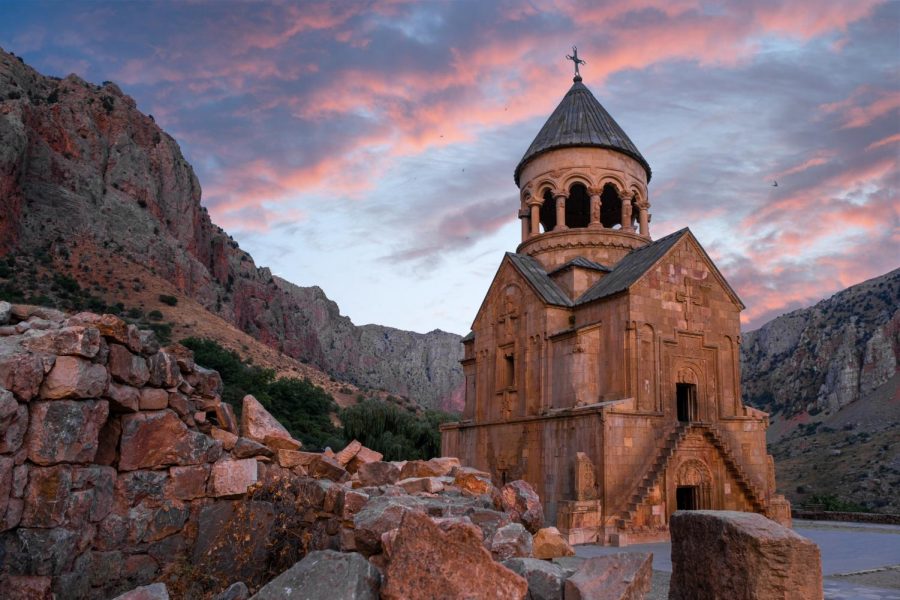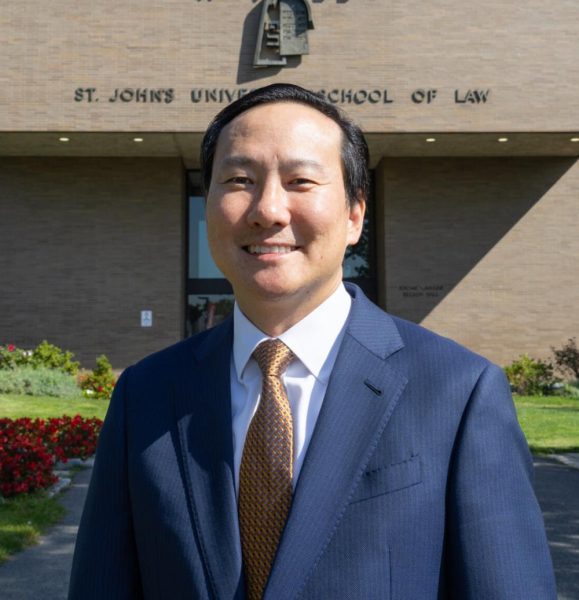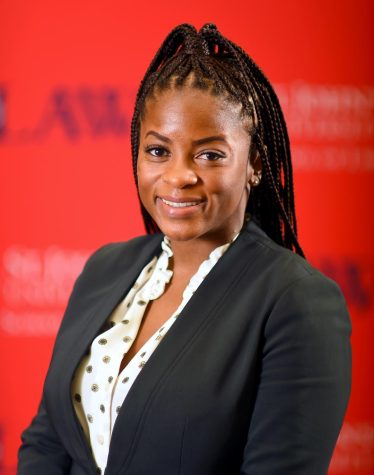Opinion: Armenia’s Future
After 45 days of fierce fighting, the Second Karabakh War ended last month with a Russian-brokered ceasefire and an Armenian defeat. As I wrote in October, this war between Armenia and Azerbaijan was a conflict over the region of Nagorno-Karabakh, which Armenians call by its historical name, Artsakh. It is populated by Christian Armenians but located within Azerbaijan, which is 97 percent Muslim. Karabakh declared independence from Azerbaijan in the 1990s and Armenians controlled the region, along with seven surrounding regions within Azerbaijan that Armenians seized as bargaining chips, for thirty years. Sporadic negotiations since the 1990s failed to resolve the conflict, and in September, Azerbaijan launched a military campaign to regain control.
This is not a total defeat of Armenia, but it is serious. Azerbaijan has succeeded in recovering parts of Karabakh, including the strategically and symbolically important city of Shushi (which Azeris call Shusha) as well as all the surrounding regions. Russian peacekeepers control the remainder of Karabakh, including a land link to Armenia proper, pending a final resolution of the region’s status.
Armenia lost the war for a few reasons, including Turkey’s decisive intervention on Azerbaijan’s side; Russia’s unwillingness to intervene until the last moment; the failure of the West to live up to its rhetoric on democracy and human rights; and Armenia’s miscalculations of its military strength and its support in the outside world.
Armenia is now even more dependent on Russia for its security and faces turbulent times. And the future of many ancient Christian sites in territories now under Azerbaijan’s control is uncertain. Still, one should put Armenia’s loss in perspective. Although the current situation is grim, Armenia has survived dark times before. Indeed, a century ago, the West left Armenia to its fate, and only Russia, for its own purposes, stepped in to guarantee the country’s survival. If Armenia’s long history is any guide, Armenia will somehow survive this sad episode as well. And there are ways for people outside Armenia to help.
For many years, Azerbaijan, whose population outnumbers Armenia’s by 3-1, has used its substantial oil revenues to purchase state-of-the-art weapons from Israel and other countries. What tipped the balance this year, though, was decisive support from Turkey, which seeks to complete the late Ottoman plan of challenging Russia in the Caucasus and building a pan-Turanian empire from the Mediterranean to Central Asia. Just as was the case 100 years ago at the time of the Armenian Genocide, Armenian Christians stand geographically in the way of this goal. Turkey sold Azerbaijan $256 million in weaponry this year alone—including highly effective drones—and supplied it with military advisors, special forces, and thousands of Islamist fighters from Syria.
Armenian soldiers fought valiantly for six weeks against the Turkish-Azeri campaign, which was supposed to last only a few days. But the Armenian army was no match for the far superior numbers, weapons, and tactics of the other side. Armenia was disappointed in its allies. Russia remained neutral for strategic reasons and intervened only when the tide had shifted decisively against Armenia. Notwithstanding the arguments of some neocons, who said that America should support Turkey and Azerbaijan in order to weaken Russia, Russia now has a stronger position in the Caucasus than before the war, with military bases in both Armenia and Azerbaijan, which has not been the case since the collapse of the Soviet Union.
Western governments and NGOs have been encouraging Armenia to leave Russia’s orbit for years. Since 2018, Armenia’s current prime minister, Nikol Pashinyan, has attempted to do so, hoping for the West’s support in return. Notwithstanding Armenia’s democratic and pro-Western reforms, however, the West’s support for Armenia during the war was limited to a few futile gestures and half-hearted pleas for both sides to return to the negotiating table, which Turkey and Azerbaijan ignored. (Since the war has ended, human-rights organizations also have failed to stop Azeri atrocities against Armenian POWs and civilians, including ISIS-style beheadings. I will not link the appalling videos here, but you can easily find them on Twitter.) The Pashinyan government overestimated both its support in the international community and Armenia’s ability to withstand attack; it also publicly distanced itself from Russia. These were mistakes for which Armenia is paying dearly.
The speed with which Russia moved massive military hardware into Karabakh at the war’s end suggests an arrangement worked out weeks, if not months, in advance. In exchange for the other territories, Azerbaijan apparently has accepted Russian control of most of Karabakh indefinitely. The initial term of the peacekeeping mission is five years, after which Azerbaijan can ask Russia to leave, but that seems unlikely. Turkey has obtained greater access to Central Asia. Only Armenia has lost. There seems little possibility of independence for Karabakh now; indeed, there is already talk of Russian passports for Karabakh’s Armenian residents.
Still, it would be wrong to see the war as a total defeat for Armenia. Russian control of Karabakh and protection of the region’s Armenians is a good second-best option for Armenia, given the alternatives. Russia had its own reasons for intervening in the manner it did, but many Armenians are frankly grateful.
Russia is also the best bet for safeguarding Armenian churches and monasteries in the territories Azerbaijan has reclaimed as a result of the war. Many of these churches are hundreds of years old, dating to when Karabakh was part of medieval Armenian provinces and kingdoms. Azerbaijan has promised to respect these sites, but the promises ring hollow. For one thing, Azerbaijan denies these churches are in fact Armenian, claiming that they are instead “Caucasian Albanian,” artifacts of a historical Christian kingdom and church linked to Armenia that disappeared in the eighth century, before many of these monasteries were even built. The Albanian theory is bizarre, as a historical matter. But it provides a pretext for Azerbaijan to deny Armenians access to their churches.
Moreover, Azerbaijan has a track record of destroying Armenian Christian sites (or razing Armenian inscriptions and repurposing the churches as Albanian). The destruction is meant to obscure any record of Armenians ever living in the Caucasus—a form of cultural genocide. Relying on international organizations like UNESCO to prevent such destruction is unwise, since such organizations typically operate at the discretion of local authorities. Realistically, the only power that can prevent the destruction is Russia. Putin reportedly obtained a personal guarantee from Azeri President Aliyev that Armenian sites in the returned territories would be protected; for good measure, Russian peacekeepers currently guard the important 12th-century Armenian monastery of Dadivank, in what is now Azeri territory. If these Armenian churches and monasteries survive—and that is a big “if,” as some already have been vandalized—it will only be because Russia makes their survival a priority.
This is not to say that outsiders can do nothing to help. Scholars can do good work debunking outrageous claims like the Albanian theory, and many have. Moreover, although the war has made clear once again that Armenia cannot count on Western governments and human rights organizations, outsiders—especially Christians—can help by directing private investment to help Armenia’s economic recovery. Outside investment will be crucial to prevent a talent drain from Armenia in the coming years.
Notwithstanding the loss of territory and the terrible loss of life, Armenians should resist despair. Armenia’s history is very long, and things have looked bleak at many points—for example, when the Persians defeated Armenians at the Battle of Avarayr in the fifth century, when Arabs invaded in the seventh, when Turks invaded in the eleventh, and when Mongols invaded in the fourteenth. More recently, there was the 20th-century genocide after which, improbably, Armenians succeeded in reestablishing a state for the first time in several hundred years.
In the wake of the Second Karabakh War, Armenians need to evaluate their mistakes—especially their misguided optimism about support from Western governments and human rights organizations—accept certain realities, and work to rebuild. Notwithstanding a calamitous history filled with injustice, Armenians have preserved a distinct and continuous Christian witness in the Caucasus for millennia. With God’s help, they will survive this most recent defeat as well.
Mark L. Movsesian is the Law School’s Frederick A. Whitney Professor of Contract Law and co-directs our Center for Law and Religion. This article published originally at First Things on December 11, 2020.










